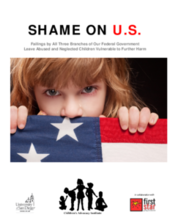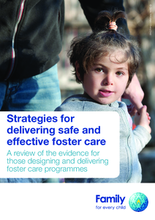Displaying 11821 - 11830 of 14429
Esta Guía, escrito en español, es una herramienta diseñada para colaboración con profesionales quienes trabajan en la implementación y manejo de programas de acogimiento familiar en América Latina.
This study, produced by the Children’s Advocacy Institute at the San Diego School of Law, examines the activities of the federal government of the United States in regards to enacting and enforcing child welfare laws and ensuring that individual states are complying with minimum federal standards for child protection.
The First Peoples Child & Family Review proudly presents this Special Edition on Custom Adoptions in partnership with the Siem Smun’eem Indigenous Child Wellbeing Research Network at the University of Victoria. This edition contains research articles, agency experiences, cultural perspectives and personal stories that highlight custom adoption from a historical and contemporary perspective.
This paper forms Part 2 of a two-part discussion paper on Indigenous custom adoption.
This paper forms Part 1 of a two-part discussion paper on Indigenous custom adoption.
This article is a review of lessons learned from the Yellowhead Tribal Services Agency (YTSA) pilot program.
This paper calls for creative pathways of engagement that delineate places of belonging for and with Indigenous youth in care.
This article describes a group of Elders in the Lax kw’alaams community of British Columbia who provide support and mentorship to the Lax kw’alaams children in care.
This report from Family for Every Child begins to fill the gap in understanding on how to deliver effective, safe foster care programmes through an exploration of the literature and interviews with experts.
This report from Family for Every Child explores rising concerns about the expansion of foster care services in low and middle income countries, it begins to fill the gap in understanding, and aims to assist in both states’ and NGOs’ decisions on whether to invest in foster care, and in the kinds of supportive services needed to make foster care safe and effective.




